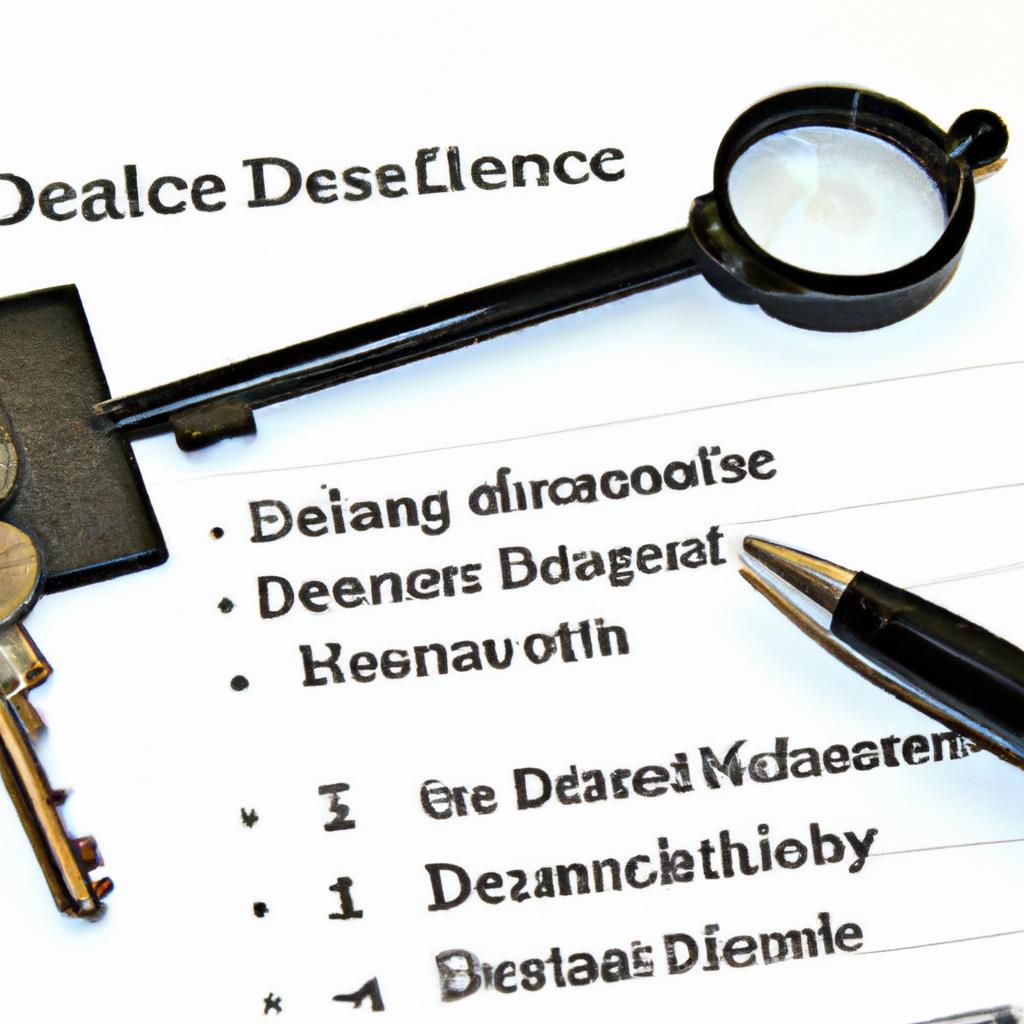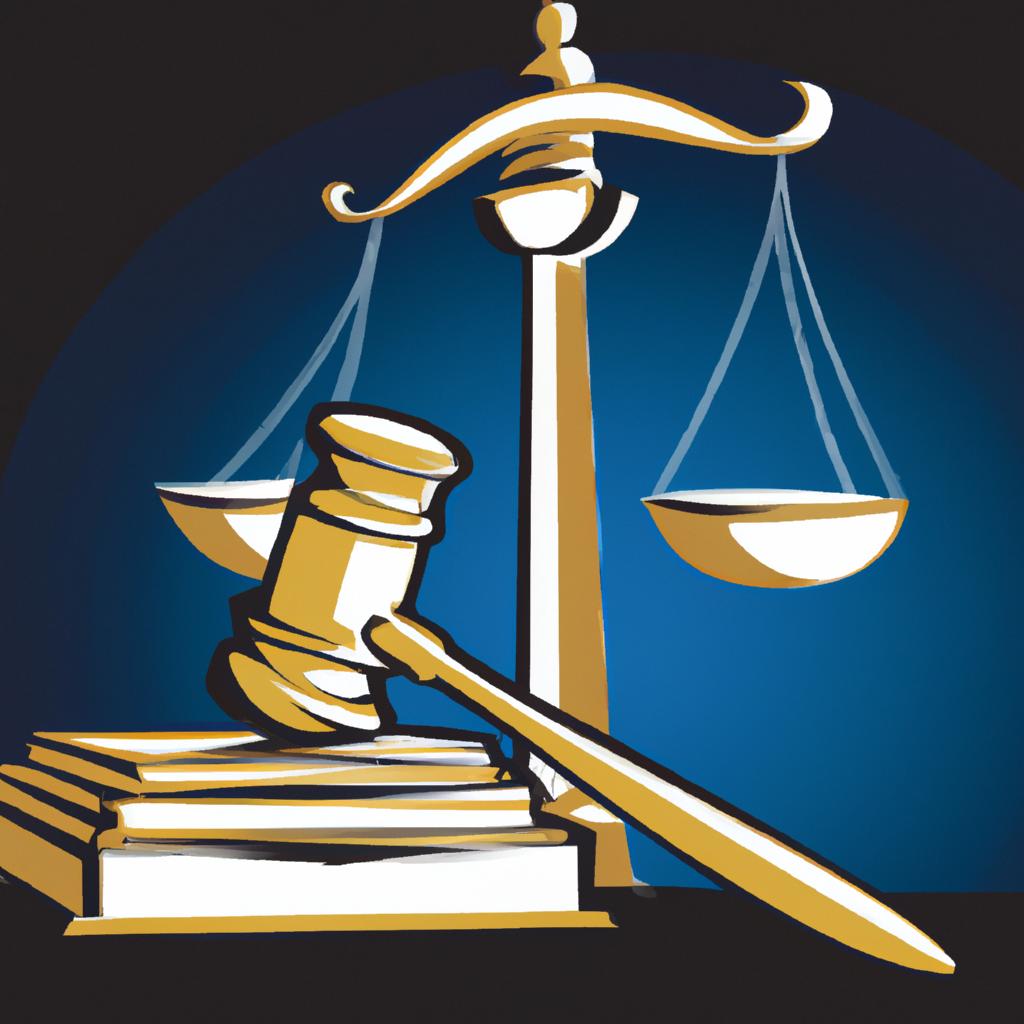When it comes to purchasing a new home, one of the most crucial steps in ensuring a smooth and secure transaction is verifying the deed of the property. The deed is a legal document that establishes ownership of a house and provides important details about the property. As experienced attorneys at Morgan Legal Group in New York City, we understand the significance of thoroughly examining the deed to protect your investment. In this article, we will provide you with expert guidance on how to properly check the deed of a house, so you can confidently proceed with your real estate transaction.
Understanding the Importance of Checking the Deed of a House
It is crucial for individuals to understand the importance of checking the deed of a house before finalizing a real estate transaction. The deed is a legal document that provides proof of ownership and outlines the rights associated with the property. It is essential to review the deed to ensure that all relevant information is accurate and up-to-date.
**By examining the deed of a house, individuals can:
- Determine the current owner of the property
- Confirm the legal description of the land
- Identify any existing liens or encumbrances on the property
- Ensure that there are no restrictions on how the property can be used
| Benefit | Details |
| Peace of Mind | Knowing the property’s ownership status can prevent future legal disputes. |
| Financial Protection | Identifying liens and restrictions can help avoid unexpected financial liabilities. |

Key Components to Look for in a House Deed
When reviewing a house deed, there are several key components that you should carefully examine to ensure the property’s ownership and rights are accurately represented. Firstly, look for the parties involved in the deed, including the grantor (seller) and grantee (buyer). Confirm that their names are correctly spelled and match the individuals involved in the transaction. Additionally, check the legal description of the property to ensure it accurately depicts the boundaries and specific location of the land.
Another crucial component to look for in a house deed is any encumbrances or restrictions that may affect the property. This can include easements, liens, or zoning restrictions that impact how the property can be used or developed. Make sure to carefully review any attachments or additional documents referenced in the deed that may provide further details about the property’s history or any outstanding issues. By thoroughly examining these key components, you can better understand the legal framework of the property and avoid any potential conflicts or complications in the future.

Steps to Authenticate the Validity of a House Deed
When verifying the authenticity of a house deed, there are several important steps to follow to ensure that the document is legally binding and accurate. One of the first things to check is the name of the grantor and grantee on the deed. Make sure that the names match the current owners of the property and that there are no discrepancies.
Next, examine the legal description of the property outlined in the deed. This should include details such as the lot number, block number, and any other relevant information that accurately identifies the location of the property. It is crucial to confirm that this information matches the physical address of the house.

Consulting with a Legal Professional for Deed Verification
When it comes to verifying the deed of a house, consulting with a legal professional is essential to ensure the property’s ownership is legitimate and there are no issues that could arise in the future. A legal expert can review the deed and conduct a thorough examination to confirm its authenticity and accuracy.
During the consultation with a legal professional for deed verification, it is important to discuss any concerns or questions regarding the property’s history and ownership. The lawyer will perform a title search, verify the seller’s authority to transfer the property, and check for any liens or encumbrances that might affect the title. By seeking legal advice, homeowners can protect themselves from potential legal disputes and ensure a smooth transfer of ownership.
Q&A
Q: I want to check the deed of my house but I’m not sure where to start. Can you help me?
A: Yes, we can guide you through the process of checking the deed of a house to ensure everything is in order.
Q: Why is it important to check the deed of a house?
A: Checking the deed of a house is crucial to verify ownership, any liens or encumbrances, and to ensure the property has a clear title.
Q: How can I obtain a copy of the deed for my house?
A: You can obtain a copy of the deed from the county recorder’s office where the property is located. It is usually a public record and can be easily accessed.
Q: What information can I expect to find on a deed?
A: A deed typically includes details such as the property description, current owner’s name, the date of purchase, and any restrictions or covenants associated with the property.
Q: What should I do if there are any discrepancies or issues with the deed?
A: If you discover any discrepancies or issues with the deed, it is advisable to consult with a real estate attorney to help you navigate the situation and resolve any potential issues.
Q: Is it possible to check the deed of a house online?
A: Yes, some counties provide online access to property records, including deeds. You can check the county’s website or contact them directly for more information on accessing the deed online.
The Way Forward
As you navigate your way through the intricate world of property ownership, remember that checking the deed of a house is a crucial step in ensuring a smooth and secure transaction. By following the steps outlined in this guide, you can gain a better understanding of the property’s history and legal standing, making you a more informed and confident buyer or seller. So, take the time to do your research, ask the right questions, and seek professional guidance if needed. With persistence and diligence, you’ll be well on your way to unlocking the secrets hidden within the deeds of your potential dream home. Happy house hunting!
 How to Check the Deed of a House: Everything You Need to Know
How to Check the Deed of a House: Everything You Need to Know
If you are in the process of buying or selling a house, it is important to familiarize yourself with the concept of a house deed. A deed is a legal document that transfers the ownership of a property from one party to another. It serves as proof of ownership and outlines the rights and responsibilities of the new owner. As such, checking the deed of a house is a crucial step in the real estate process. In this article, we will discuss everything you need to know about how to check the deed of a house, including why it is important and the steps you should take. So let’s dive right in!
The Importance of Checking the Deed of a House
Before we get into the details of how to check the deed of a house, let’s first understand why it is so important. First and foremost, the deed serves as legal proof of ownership. It contains crucial information about the property, including the names of the current and former owners, the legal description of the property, and any restrictions or encumbrances on the property. By checking the deed, you can ensure that the seller has the legal right to sell the property and that there are no outstanding claims or issues that could affect your ownership.
Furthermore, checking the deed can also save you from potential legal issues. If there are discrepancies or mistakes in the deed, they can be resolved before you finalize the purchase, avoiding any future disputes. It can also help you identify any potential liens on the property, such as unpaid taxes or mortgages, which could affect your ability to obtain financing or insurance for the property.
How to Check the Deed of a House
Now that you understand the importance of checking the deed, let’s discuss the steps you should take to do so properly.
1. Obtain a Copy of the Deed
The first step to checking the deed is to obtain a copy of it. In most cases, this can be obtained from the county recorder’s office where the property is located. You can also request a copy from the seller or their real estate agent. If the property is located in a state with a digital database of property records, you may be able to access the deed online.
2. Review the Deed
Once you have a copy of the deed, review it thoroughly. Make sure all the information is accurate, including the names of the current and former owners, the property’s legal description, and any restrictions or encumbrances on the property. It is also important to ensure that the seller has the legal right to sell the property and that there are no liens or outstanding claims on the property.
3. Check for any Discrepancies or Mistakes
As you review the deed, be on the lookout for any discrepancies or mistakes. Common mistakes include misspelled names or incorrect measurements of the property. Make sure to flag any errors or concerns and bring them to the attention of the seller or their real estate agent.
4. Verify the Property Boundaries
The deed will also include a legal description of the property, including the boundaries. Make sure to verify these boundaries with the actual property lines on the ground. This can be done by obtaining a survey of the property.
5. Search for Liens or Encumbrances
As mentioned earlier, checking for any liens or encumbrances on the property is crucial. These can include unpaid taxes, mortgages, or any other claims against the property. You can conduct a lien search at the county clerk’s office or hire a title company to do it for you.
Tips for Checking the Deed of a House
– If you are unsure about any part of the deed, seek the help of a real estate attorney. They can review the document and ensure its accuracy.
– If you are buying a property from a trust or an estate, make sure to obtain the deed from the trustee or executor.
– If you are buying a property with a co-owner, it is important to understand the type of co-ownership and how it will affect your rights and responsibilities as an owner. This information can typically be found in the deed.
Benefits of Checking the Deed of a House
– Avoid potential legal disputes or issues.
– Ensure the seller has the legal right to sell the property.
– Gain a better understanding of the property’s boundaries and any restrictions.
– Protect your ownership rights.
– Identify any potential liens or encumbrances on the property before purchasing, saving you time and money in the long run.
In Conclusion
Checking the deed of a house is an essential step in the real estate process. It can help you avoid potential legal issues and ensure the accuracy of the information related to your ownership of the property. By following the steps outlined in this article and seeking the help of a professional if needed, you can ensure a smooth and hassle-free purchase or sale of a property. Remember, prevention is key, so take the time to check the deed before making one of the biggest investments of your life.

